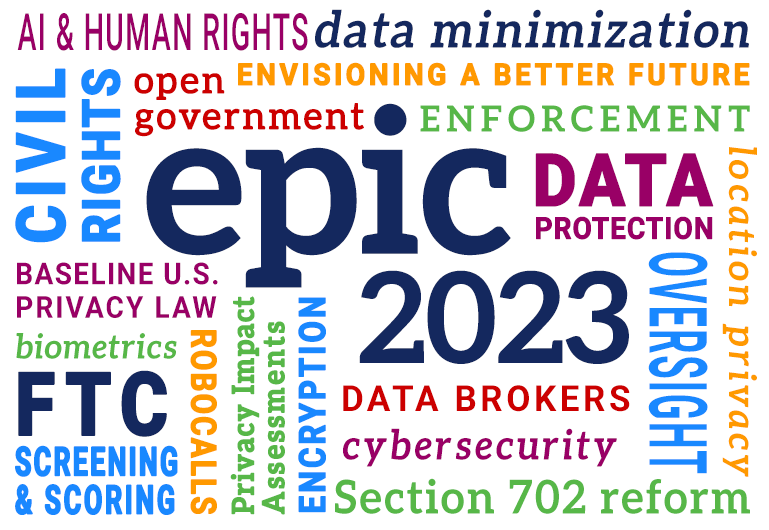About Us
EPIC was established in 1994 to protect privacy, freedom of expression, and democratic values in the information age.

Our mission is to secure the fundamental right to privacy in the digital age for all people through advocacy, research, and litigation. We are a 501(c)(3) non-profit research and advocacy center. We have no clients, no customers, and no shareholders. We need your support.
We believe…
Privacy is a fundamental right.
All people deserve protection from abusive data practices like mass surveillance, browser tracking, demographic profiling, and data discrimination. Protecting privacy means preserving our digital autonomy, individual freedom, and democratic values.
The internet belongs to the people who use it.
Standards for privacy, free speech, and human rights online should not be defined by corporations or unaccountable government actors. EPIC believes in balancing the scale in favor of the billions of people who rely on the internet in their day-to-day lives.
There’s a responsible way to use technology.
Technology can enrich our lives and enable new possibilities for the future. But these systems can also threaten our fundamental values. That is why EPIC advocates for meaningful oversight of data collection and processing systems to ensure that users are protected from abuse, exploitation, discrimination, and invasive surveillance.
EPIC works at the intersection of policy, advocacy, and litigation. We pursue a variety of activities, including litigating cases on emerging privacy issues, obtaining and publishing records to lift the veil on government data collection, providing expert advice to policymakers and lawmakers, and facilitating dialogue between advocates, experts, and decisionmakers. EPIC is an independent organization guided by its Board of Directors and Advisory Board, which are composed of experts in law, technology, and public policy.

Support Our Work
EPIC’s work is funded by the support of individuals like you, who help us to continue to protect privacy, open government, and democratic values in the information age.
Donate Now